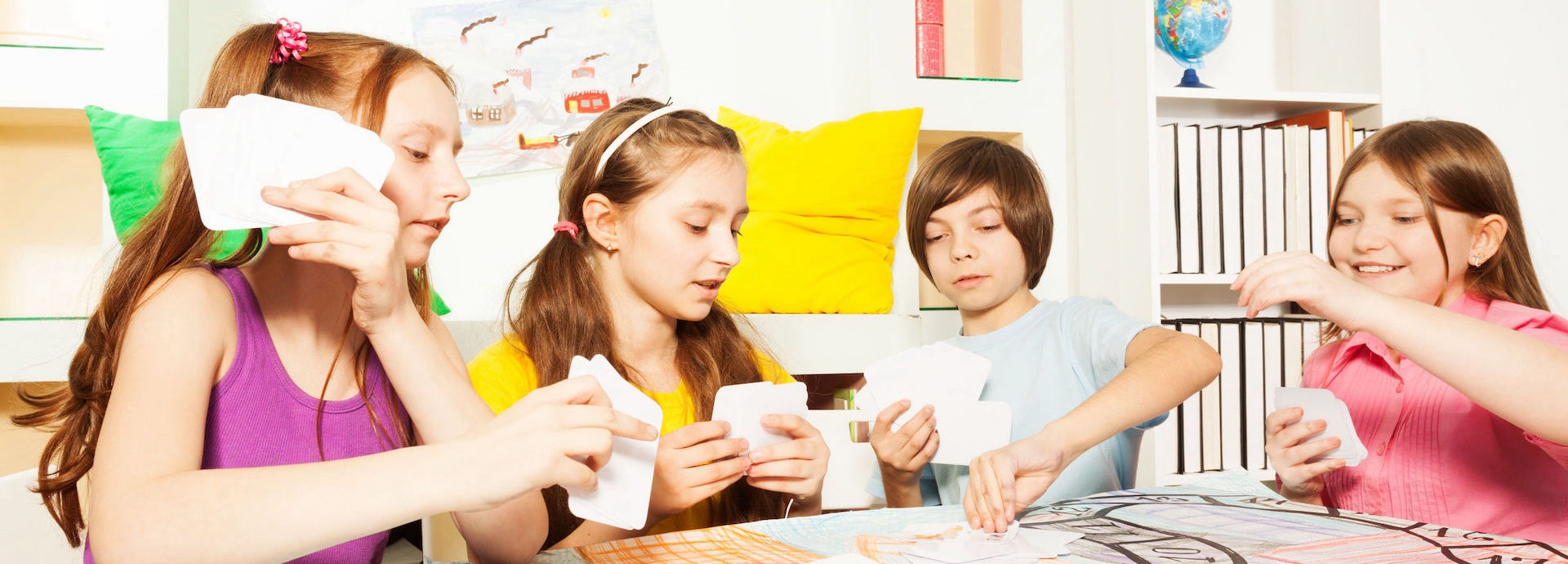

Games aren’t just fun. They provide “edutainment”: a way to learn about complex issues such as climate change and try to find solutions to them.
Dr. Steffi De Jans, a researcher at Ghent University’s Centre for Persuasive Communication, is a firm believer that games have a very real and serious role to play in popularising science and raising awareness about important topics.
De Jans and her colleagues have developed and tested two serious mini-game platforms for children and adolescents to increase their advertising literacy.
“Our research shows that these serious games are more effective compared to traditional interventions, such as an educational brochure or informational booklet, on affective and motivational outcomes,” says De Jans.
“More
specifically, the children found the games more engaging, had a more positive attitude toward the learning experience and had a higher motivation to interact with the game and the learning materials again in the future compared to when they read the
informational brochure.”
Confronting the climate crisis
Games can play an important role in engaging people around topics that are particularly complex or difficult to grasp, like the climate crisis.
Dorina Rajanen and Mikko Rajanen study the role of games in climate change engagement at the University of Oulu’s Interact Research Unit.
Mikko Rajanen cites three specific reasons games are a useful tool for fighting climate change.
“First, games can be used to help gather scientific data about local weather, attitudes, as well as adaptation and mitigation measures taken,” he says. “Second, games and gamification can be used to motivate people towards a more
sustainable lifestyle, such as when players are presented digital rewards for using less energy or for recycling. And third, games can be used to communicate complex global issues such as climate change in easier and more engaging ways than just providing
facts and figures.”
Dorina Rajanen agrees. She adds that a wisely designed game can help users acquire different skills and knowledge about the environment and guide them through possible actions to fight climate change.
The versatility of games, she says, helps reach a more diverse population than other forms of communication about climate change since games can be played in a variety of settings, including workplaces, classrooms, public spaces or at home.
Matthew Leacock, the inventor of the hit board game “Pandemic”, who is now working on a game called “Daybreak” in which players try to solve the climate crisis, agrees that games provide an opportunity to engage in discussion and collaboration around complex subjects.
“Games can provide a reason for people to get together, set the stage, communicate the severity and scope, and establish new frames for people to understand topics such as climate change,” Leacock says.
“Such games can provide opportunities for deeper learning as the players begin to tacitly understand the dynamics of a system through their play. Each game’s session can function as a little experiment as players attempt to work out their best strategies and then see how the system responds…If the game’s model is legitimate, players will then have a deeper understanding of what those strategies would look like in the real world.”
Multiple ways to have fun
While the world waits for “Daybreak” to hit the stores, there are other games kids and adults alike can play now to deepen their understanding of environmental issues.
According to Mikko Rajanen, one of the most widely known and best examples from the climate change perspective is the strategy game "Fate of the World," in which the player is put in charge of managing global policies related to social, technological, and environmental decisions. He praises the game for being based on real scientific data and illustrating how difficult it can be to balance between different global needs and making a positive impact on climate change.
Another game that he recommends is "Cities: Skylines" and the expansion pack "Green Cities," where the players’ goal is to build the greenest and best city with the healthiest residents. There is also "FoldIt," a game used for both popularising science and gathering actual scientific data; the goal is to fold protein structures as optimally as possible.
“This greatly helps the basic scientific research on protein structures,” Mikko Rajanen elaborates. “This kind of puzzle solving is something that we humans do much better than computers, which can only try to find the optimal solution through brute force calculations taking a lot of time and resources. These games are good examples of how games and gamification can be used to popularise science, collect scientific data, and communicate complex phenomena.”
Popularising games as tools against climate change
The growing body of research carried out by people like De Jans and the Rajanen demonstrates that children and adolescents are more motivated to act with interventions like games than with traditional ways of learning, which leads to a positive impact on cognitive outcomes in the long run.
“Games and simulations have for a very long time played (pun intended) a very important role in militaries, large companies, and other organisations to try out different alternative scenarios and to help learning, decision-making and communication,” Mikko Rajanen says.
That said, he concurs that games do not replace traditional journalism or popularisation of science. Instead, they provide novel ways to reach those who otherwise might not be interested.
Did you like this? Subscribe to Insights updates!
Once every six weeks, you will get the top picks – the latest and the greatest pieces – from this Insights channel by email.
